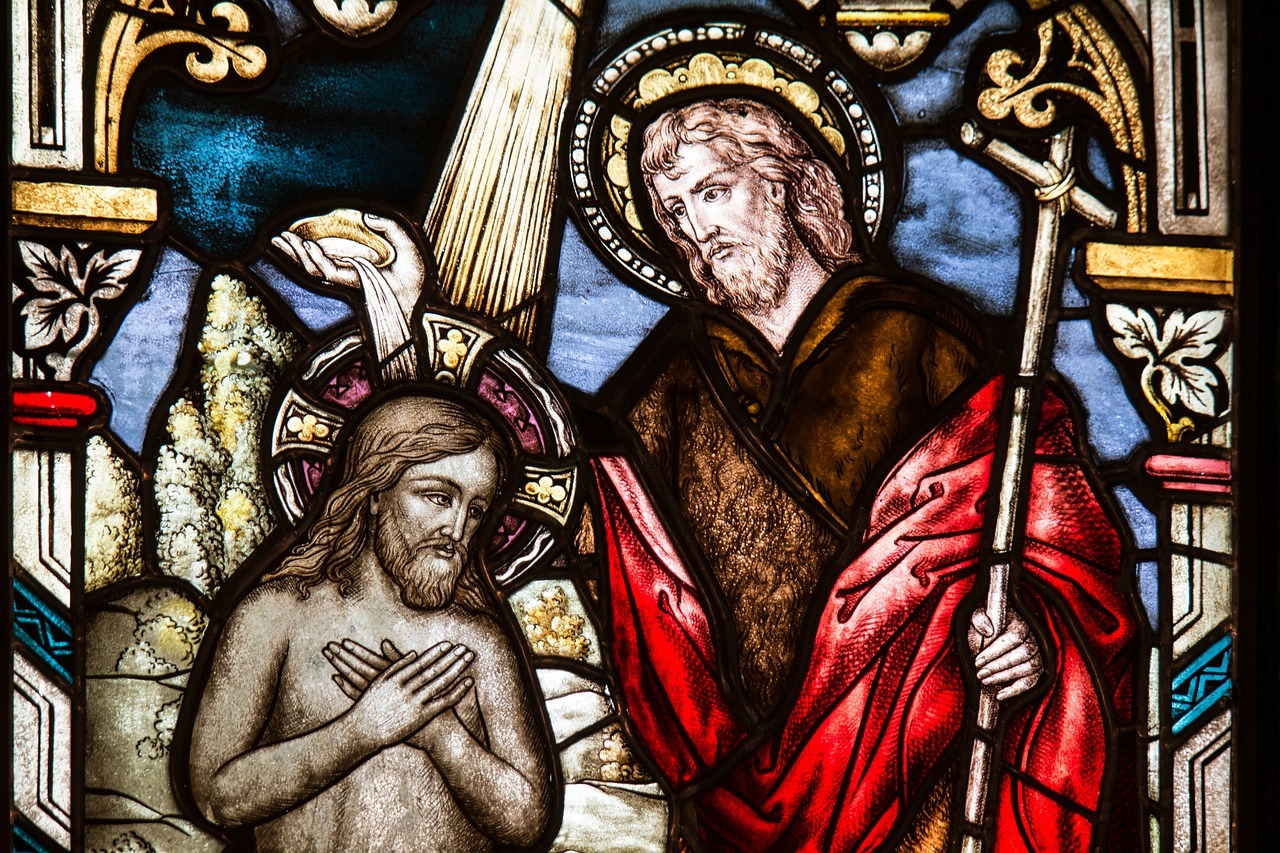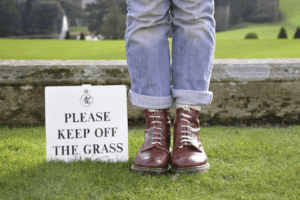RCL: Baptism of Our Lord Genesis 1: 1-5; Psalm 29; Acts 19:1-7; Mark 1: 4-11
Did you know that, if you were to visit Israel today (although perhaps you’ll want to wait for more peaceful times), you yourself could be baptized in the Jordan River?
Scholars believe that Jesus was baptized by his cousin John at a point on the river not far from the Dead Sea. Today however, at a site upriver called Yardenit, a facility with reception area, gift shop, changing rooms and showers has been set up to welcome both visitors who wish to be baptized in the river, and groups of Christians renewing their baptismal vows as an act of devotion. You need to bring along your own clergy. When I visited Israel in 2011, the leader of my tour group was a priest of the Anglican Church of Canada and a retired Chief of Chaplains for the Canadian Forces. (This, by the way, is an excellent combination to have when you’re visiting a region with serious security concerns.)
At Yardenit you buy an admission ticket that includes a towel, soap and access to the showers afterward, because, unfortunately, the waters of the Jordan are less than pristine. You wear a bathing suit. Our group leader offered participants three options: just wait at the railing overlooking the steps, or go partway down the steps to the river and just dip into the water with a foot or hand, or go all the way in with your group leader, where each participant in turn is fully submerged in the Jordan. While those of us who waded in all the way were still gasping and blubbering from water dripping everywhere, struggling to wade back to shore, another group not far away was shrieking with pure joy because they were being baptized just as Jesus was. It can be a powerful, memorable religious experience. And you can bring home a customized DVD to remember your group’s experience at the Jordan.
No matter what happens in your life, no one and nothing can ever negate your baptism. You can be thrown out (or walk out) of the church, but nothing can nullify your baptism. It’s forever. And we are baptized only once — that’s the reason why, if you are a baptized Christian who goes down into the Jordan River as a devotional act, it’s not a second baptism, but a renewal of one’s commitment to the first.
In his own time John was not the only baptist on the circuit of preachers denouncing sin and calling for repentance. In fact there were a number of such wandering preachers. They were spiritual descendants of the great prophets who, hundreds of years before, had called upon the entire Hebrew people to renounce the foreign gods and cults they had adopted while in exile — to remember the God who had brought them out of slavery in Egypt, and to change their ways as an entire people to worship the God of their ancestors. The new generation of prophets such as John the Baptist did not direct their efforts to a whole people, but instead to individuals such as soldiers and merchants in their own concrete circumstances. As a sign of the individual’s conversion and fresh determination to turn away from their past and to begin anew, the prophet invited them to go down into the water. By immersing themselves they showed their willingness to plunge into a radically new way of life, cleansing themselves symbolically of their wickedness, and emerging as different persons, stronger and ready to embrace a way of life characterized by honesty and justice.
It is precisely in the dignity given by baptism that we can live in some way in union with Christ, and can reflect the love and compassion of Christ to others, as best we can. As Paul writes in his letter to the Romans, we have died and risen with Christ in Baptism, the source of our own hope of resurrection. This knowledge gives us a profound faith, great strength, and unshakeable conviction to do the work of making justice and challenging unjust structures — because baptism is not just for us. Baptism is nothing less than a lifelong call to live the Gospel message as an invitation and a call to others, and as a powerful witness in our world to the everlasting love of God.
© Susan K. Roll
This Reflection has been revised from the 2021 original for this feast.
Susan Roll retired from the Faculty of Theology at Saint Paul University, Ottawa, in 2018, where she served as Director of the Sophia Research Centre. Her research and publications are centred in the fields of liturgy, sacraments, and feminist theology. She holds a Ph.D. from the Catholic University of Leuven (Louvain), Belgium, and has been involved with international academic societies in liturgy and theology, as well as university chaplaincy, Indigenous ministry and church reform projects.




